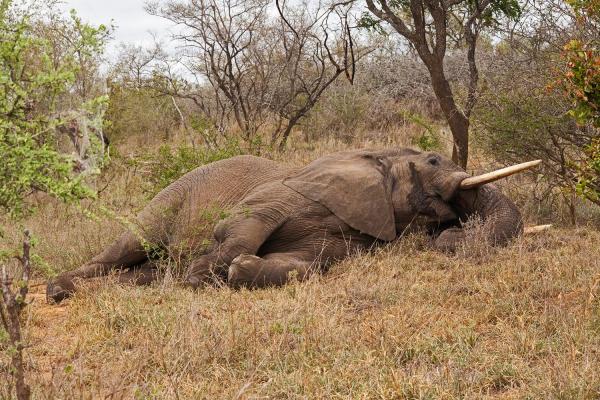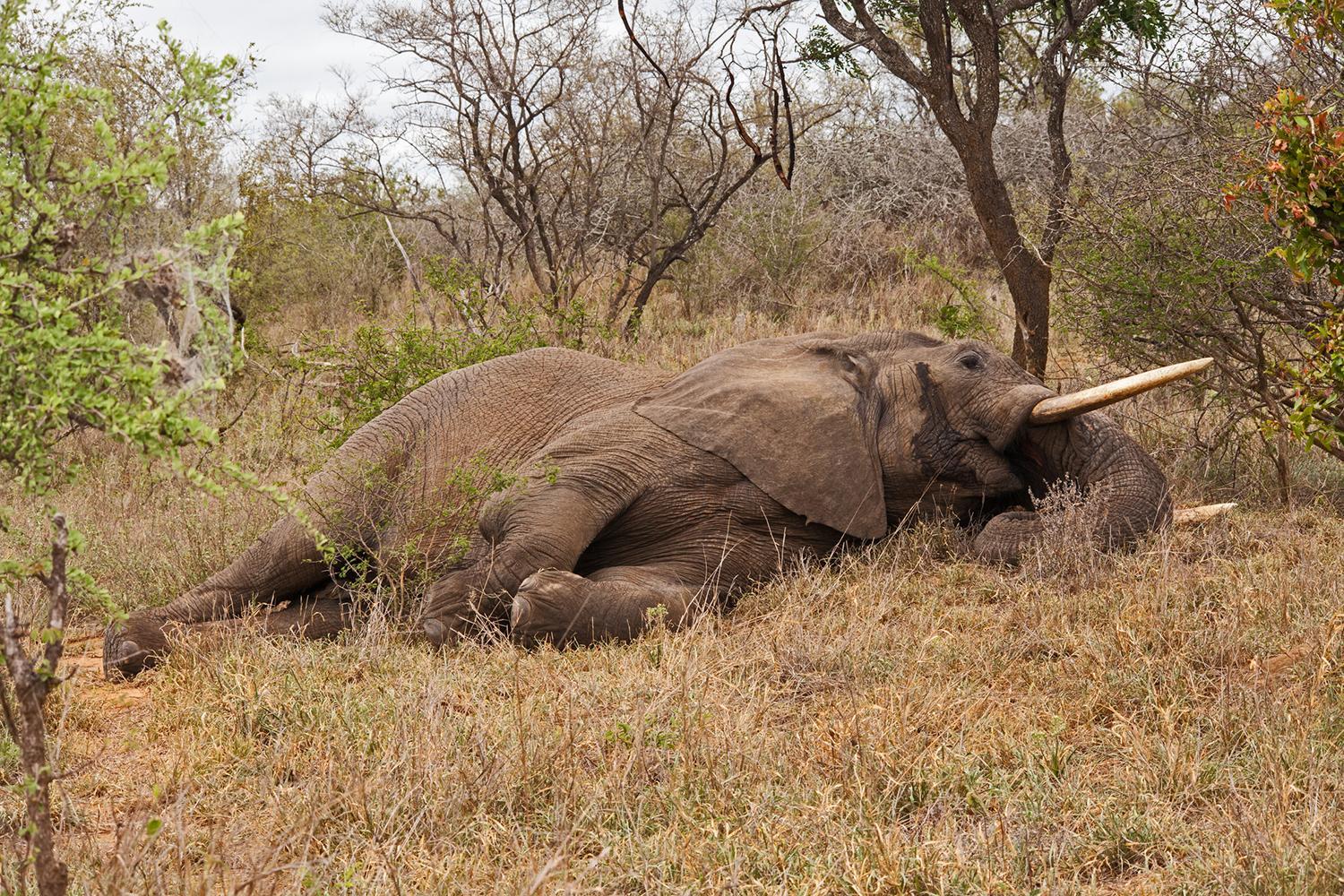How Do Elephants Sleep?


Elephants are known for being the largest land mammals on earth and having a distinctly massive body, large ears and long trunks. Elephants are impressive not only for their size, but also for their intelligence and complex social structure. There are many interesting facts to learn about these amazing mammals, one of which is the way they sleep. If you have ever wondered whether what are the sleeping habits of elephants, you have come to the right place.
In the following AnimalWised article, you will learn everything you need to know about how do elephants sleep, as well as some other interesting facts.
How long do elephants sleep?
Just like humans, all animals need sleep because sleep is a biological necessity. Sleep is essential for maintaining good mental and physical health and helps us recover from mental and physical exertion.
Not all animals require the same amount of sleep. Some sleep much more than others, and the length of sleep depends on an animal's size and eating habits. Herbivores, for example, must eat many hours a day to meet their nutritional needs. They are also at greatest risk of being eaten by other animals, so they must be constantly alert. Ruminants, such as goats, sheep, and antelopes, sleep standing up and keep their eyes partially open. Some even continue to ruminate during sleep.
In the case of elephants, their sleep pattern is peculiar. In fact, they sleep the least of all mammals. Additionally, those who live in the wild have different sleeping habits than those who live in captivity. Elephants in zoos sleep four to six hours a day. Elephants in the wild, on the other hand, rest for only two hours.
Studies also show that some elephants sleep more than others, even within the same herd. Herd matriarchs sleep the least and can stay awake for days at a time, especially when traveling long distances.
Why do elephants sleep so little?
The reasons why elephants sleep so little have to do with the following factors:
- Elephants need to find large amounts of food: Elephants feed on plant matter (roots, grasses, fruits, and bark) that is not very nutritious, so they must consume large amounts each day to meet their needs, and they must travel long distances to do so. An adult elephant can consume up to 300 pounds (0.14 ton) of food in a single day. And on average, elephants spend up to 16 hours a day eating.
- Elephants need to stay alert: Once elephants are adults, their size, and strength make them unattractive prey for predators in their environment. As a rule, an elephant is very unlikely to be attacked by other animals unless it is alone, sick, or injured. However, this does not mean that elephants do not have to worry about predators. Baby and young elephants are particularly vulnerable to predators and cannot defend themselves. Therefore, they must be protected by the herd at all times, specially at night.
Do elephants sleep standing up or lying down?
Elephants can sleep both standing up and lying down. This may also depend on whether they live in captivity or in the wild, as they are more likely to sleep lying down in captivity than in the wild.
The reason that wild elephants prefer to sleep standing up is because they are constantly traveling long distances, and it takes them a lot of effort to get back up. Especially since they only sleep for short periods of time. Also, they are so large that, like horses, if they lie down for too long, the weight of their body can obstruct the blood supply to certain parts of their body.
Another reason that prevents elephants from lying down is that upright position makes them less vulnerable to predators.
Captive elephants, on the other hand, do not have to fear predators or lack of food and therefore can rest for longer periods.
Did you know that elephants have a similar life expectancy to humans? However, due to poaching, climate change and habitat destruction, all three existing species are on the International Union for the Conservation of Nature's Red List. Read on in this other article where we talk about the lifespan of elephants and the threats they face.

When do elephants sleep?
Elephants normally sleep at night. Studies show that most sleep occurs between 1:00 and 6:00 am. However, elephants in the wild also take short naps during the day. Instead of sleeping for many hours at a time, they sleep several times in a 24-hour period instead of just once per night, a pattern known as polyphasic sleep. These naps can last between 5 and 20 minutes each.
Where do elephants sleep?
Because elephants are used to traveling long distances, they are used to sleeping in a different place each night.
To protect each other from possible danger, wild elephants sleep in groups. Usually, one group of elephants sleeps while another group of elephants stays awake, and then they switch places. The elephants that stay awake watch for danger and warn the sleeping elephants of a possible threat.
During the short naps they take during the day, elephants lean against trees or large hills, or lay their trunks on the ground and snooze.
If you want to learn more about these amazing mammals, do not miss this other article where we talk about where elephants sleep.
If you want to read similar articles to How Do Elephants Sleep?, we recommend you visit our Facts about the animal kingdom category.
- Research and Science (2017). The brief dream of the elephants . Available at: https://www.investigacionyciencia.es/noticias/el-breve-sueo-de-los-elefantes-15080
- NIH (2017) What is REM soil? Available at: https://espanol.nichd.nih.gov/salud/temas/sleep/informacion/REM#:~:text=El%20sue%C3%B1o%20REM%20representa%20el,y%20es%20when% 20se%20sue%C3%B1a.
- Myers, P.; Espinosa, R.; Parr, CS; Jones, T.; Hammond, G.S.; Dewey, T.A. (2022). Animal Diversity website. Available at: https://animaldiversity.org






